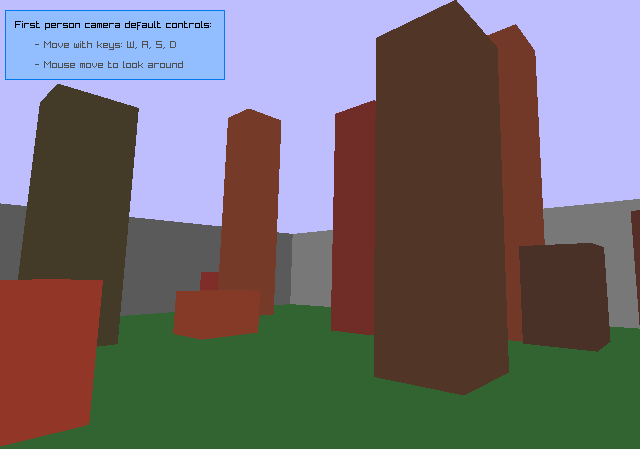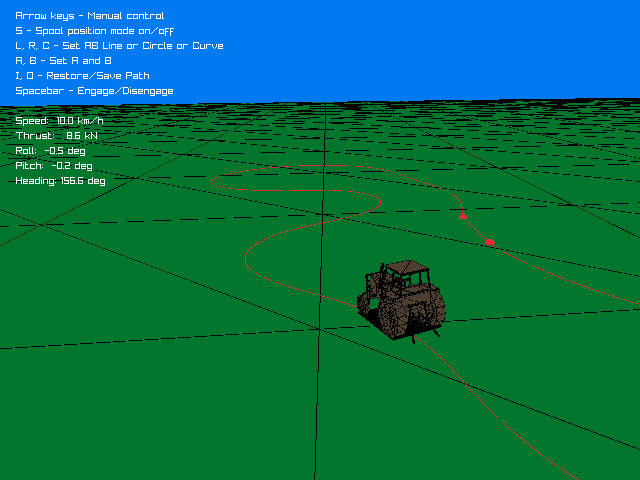Umka is a statically typed embeddable scripting language. It combines the simplicity and flexibility needed for scripting with a compile-time protection against type errors. Its aim is to follow the Python Zen principle Explicit is better than implicit more consistently than dynamically typed languages generally do.
- Playground
- Downloads
- Packages
- Documentation
- Community
- VS Code plugin
- Clean syntax inspired by Go
- Cross-platform bytecode compiler and virtual machine
- Garbage collection
- Arrays and structures compatible with C
- Polymorphism via interfaces
- Multitasking based on fibers
- Type inference
- Distribution as a static or dynamic library with a simple C API
- C99 source
400 x 400 matrix multiplication (AMD A4-3300M @ 1.9 GHz, Windows 7)

- Try Umka in the playground
- Download the latest release for Windows and Linux
- Take a tour of Umka
- Read the language and standard library documentation
- Join our community chat
- Explore the raytracer example that demonstrates many language features like fibers, interfaces and dynamic arrays
- Play with the toy Lisp interpreter written in Umka
- Try the more realistic C+Umka embedded scripting example (Note: raylib is required to compile and run it)
- See what real-life projects successfully use Umka
- If you are familiar with Go, read about the differences
- Money, please!: A visual novel/puzzle game. Designed and developed in 96 hours for GMTK Game Jam 2024
- I LOVE FEM: A tophat-based 2D finite element method demo
- SpaceSim: A 3D orbital rendez-vous and docking simulation that uses a custom software renderer written in pure Umka, with tophat as a 2D drawing backend
- Umka OS: A proof of concept operating system written in C and Umka
- VDrift/Umka: A racing simulator that lets you design, tune and test your own car autopilot
- TractorSim3D: A 6 DOF tractor dynamics simulator with a scriptable steering controller and raylib-based graphics
fn main() {
printf("Hello Umka!\n")
}
const a = 3
const b* = 2.38 // Exported identifier
const (
c = sin(b) / 5
d = "Hello" + " World"
)
type IntPtr = ^uint16 // Pointer
type Arr = [a]real // Array
type (
DynArr = [][5]int // Dynamic array
String = str // String
Button = enum { // Enumeration
left
middle
right
}
MyMap = map[str]real // Map
Quat = struct { // Structure
q: [4]real
normalized: bool
}
Printable = interface { // Interface
print(): int
}
ErrFn = fn(code: int) // Function
)
var e: int
var f: String = d + "!"
var (
g: Arr = [3]real{2.3, -4.1 / 2, b}
h: DynArr
m: MyMap
)
q := Quat{q: [4]real{1, 0, 0, 0}, normalized: true}
fn tan(x: real): real {return sin(x) / cos(x)}
fn getValue(): (int, bool) {return 42, true}
fn (a: ^Arr) print(): int {
printf("Arr: %v\n", a^)
return 0
}
h = make([][5]int, 3) // Dynamic arrays and maps are initialized with make()
m = make(MyMap)
m["Hello Umka"] = 3.14
sum := 0.0
y := tan(30 * std::pi / 180)
h = append(h, [5]int{10, 20, 30, 40, 50})
h = delete(h, 1)
g.print()
if x, ok := getValue(); ok {
printf("Got %v\n", x)
}
switch a {
case 1, 3, 5, 7: std::println(std::itoa(a) + " is odd")
case 2, 4, 6, 8: std::println(std::itoa(a) + " is even")
default: std::println("I don't know")
}
switch v := type(a) {
case int: printf("int: %d + 5 = %d\n", v, v + 5)
case str: printf("str: %s + 5 = %s\n", v, v + "5")
default: printf("unknown: %v\n", a)
}
for k := 1; k <= 128; k *= 2 {
printf("%v\n", k)
}
for i, x in g {
if fabs(x) > 1e12 {break}
if x < 0 {continue}
sum += x
}
a := new(int)
child := make(fiber, |a| {
for i := 0; i < 5; i++ {
std::println("Child : i=" + std::itoa(i) + " buf=" + std::itoa(a^))
a^ = i * 3
resume()
}
})
for i := 0; i < 10; i++ {
std::println("Parent: i=" + std::itoa(i) + " buf=" + std::itoa(a^))
a^ = i * 7
if valid(child) {
resume(child)
}
}
While Go is a compiled systems programming language with a complex runtime library and big output binaries, Umka is a scripting language with a lightweight interpreter that can be easily embedded into any application as a shared library.
Umka is very similar to Go syntactically. However, in some aspects it's different. It has shorter keywords: fn for func, str for string, in for range. For better readability, it requires a : between variable names and types in declarations. It doesn't follow the unfortunate C tradition of pointer dereferencing. Instead of *p, it uses the Pascal syntax p^. As the * character is no longer used for pointers, it becomes the export mark, like in Oberon, so that a programmer can freely use upper/lower case letters in identifiers according to his/her own style. Type assertions don't have any special syntax; they look like pointer type casts. Closure definitions require explicit lists of captured variables.
Umka allows implicit type casts and supports default parameters in function declarations. It features the ternary conditional operator deliberately omitted from Go. It doesn't have slices as separate data types. Instead, it supports dynamic arrays, which are declared like Go's slices and initialized by calling make(). Method receivers must be pointers. The multithreading model in Umka is inspired by Lua and Wren rather than Go. It offers lightweight threads called fibers instead of goroutines and channels. The garbage collection mechanism is based on reference counting, so Umka needs to support weak pointers. Full Unicode support is under development.








